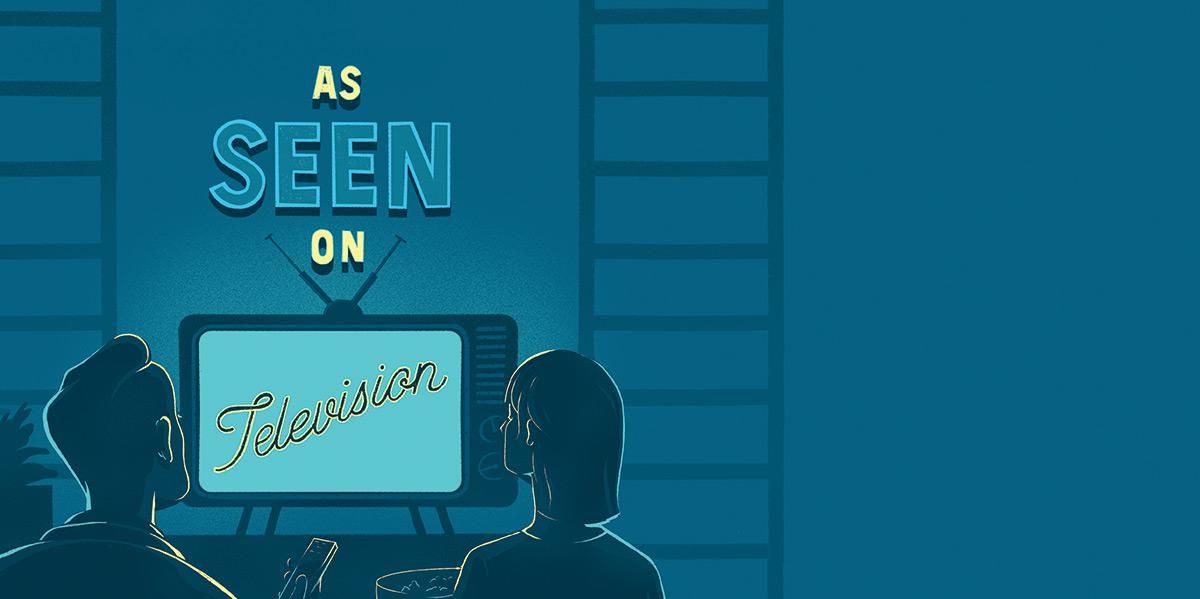Andrew Shaskin loves watching policing shows on TV. The action, the drama, the car chases, the speedy resolutions to complicated stories – he says they always make for pleasurable viewing. But, he says, if a medical show comes on after a police show, he has to turn the TV off. Medical shows get so much wrong, says Shaskin, who teaches in the Primary Care Paramedic program at Lethbridge College. From performing CPR incorrectly to wearing stethoscopes the wrong way to showing someone doing an emergency tracheotomy using a ballpoint pen, Shaskin says the many mistakes made on medical shows take the pleasure out of watching a program. “That’s why I watch shows about military and police,” he says. “I just don’t know any better and I assume that must be exactly how it all happens. I can get into that. Like, oh, that’s real, it must be exactly like that,” he adds with a laugh.
His colleagues in the Criminal Justice program disagree, however, and find much to critique (and yet still occasionally appreciate) in policing shows. The chefs in the Culinary program have a similar love-hate relationship with cooking shows. Down the hall to the Interior Design Technology program, the instructors find both pleasure and pain watching home renovation shows. The same is true in Athletics, where staff see the good, bad and ugly about the way sporting shows share their messages. And across campus, the Digital Communications and Media faculty cringe as much as they celebrate at the way journalists are portrayed in pop culture.
Dr. Aaron Taylor, a film studies scholar at the University of Lethbridge, explains that we are conditioned to expect a basic degree of truth from our fictions, whether on the large or small screen. “And yet other priorities – the crafting of drama, the cultivation of close relationships with make-believe people – tend to take precedence,” he says.
When Dr. Taylor interviewed Sandra Oh, who played the beloved Christina Yang on Grey’s Anatomy, she told him she had performed more surgeries in nine seasons of Grey’s Anatomy than many young MDs. But she also indicated that what she does with her hands during a pseudo-surgery involves more than just “sewing up a pair of old, dried-up lungs.” He explains: “Her movements tell a story – about what her character might be feeling about that high-stress moment and about her life outside the operating theatre.”
“I just don’t know any better and I assume that must be exactly how it all happens.”
{ Andrew Shaskin }
And yet, sometimes “an incorrectly worn stethoscope is enough to take us out of a story – especially when we expect our imaginary physicians to be competent ones,” Dr. Taylor adds. “However, we might also remember that enacted fictions do more than present the details of a professional activity: they recreate our jobs with a compelling vivacity. And that’s no small task.”
Watching the recreation of their jobs on TV and in the movies can be a mixed blessing for many Lethbridge College instructors, who typically have come to teaching after having worked in their fields for years. Some say catching the mistakes keeps them from enjoying the programs. Others take pleasure in seeing the slip-ups. Some of them say their partners refuse to watch industry-related shows with them because they complain the whole time about what went wrong. And some say they can’t watch their industry-related shows at all.
To get the low down on some of TV’s most highly regarded programs, Wider Horizons sat down with dozens of Lethbridge College instructors and staff members this fall to learn what today’s shows get right – and sometimes oh-so-very-wrong – about the industries they are showcasing. Here’s some of what they had to say.
LAW AND ORDER SPECIAL VIEWERS UNIT
CRIMINAL JUSTICE AND CORRECTIONS
CONTRIBUTORS TO THE CONVERSATION: Criminal Justice and Corrections instructors Murray Bartley, Sheila French, Dean Kolebaba, David Maze, Renee Scotland and Dan Walton.

SHOWS THEY LOVE:
Law and Order, Mindhunter, the Police Women reality documentary series, which follows female members of law enforcement agencies in different communities at work and at home, The Rookie, and To Serve and Protect. This team also named some oldies but goodies, including Barney Miller (shows great working relationships between colleagues as well as police officers doing paperwork), Hill Street Blues (shows some of the challenges facing front line officers), Adam 12, the original Dragnet and Toronto Metro.
WHAT MAKES THEM CRINGE:
Scared Straight and Beyond Scared Straight, to start with. Corrections instructor French explains that, as a behavioural psychologist, “research shows strict punishment and scare tactics don’t work to reduce reoffending. It’s not as simple as scaring someone straight.” CSI and its spinoffs also elicit groans. It takes “an extraordinarily long time” and is very expensive to do DNA tests, for one thing. And Maze has done research showing that CSI and similar shows have had a negative effect on Canadian juries, “who are judging what the police are doing based on what they’ve seen on TV.”
WHAT THESE SHOWS ARE MISSING:
There’s a lot more paperwork in real-world policing. Real-world police officers do not instantly get warrants or approvals for wiretaps. There are not very many high-speed chases in a policing career. And a lot of police work is mundane. Like – very mundane. Until the moment when it’s not.
IF THEY HAD A SHOW OF THEIR OWN:
These instructors would like to see more human nature stories, showing the struggles and success of people who work in and are affected by the world of policing and corrections.
MADE IN CANADA?
These instructors can quickly tell when a show is made in Canada or in the United States. Some easy giveaways? Canadians would never be charged with DUI (if they drank and drove, they’d be charged with impaired driving). They would never be elected police chief (Canadian police are all public servants). It extends into what their organizations are called – a police force in the U.S. and a police service in Canada – and especially into differing views on the use of guns. “In Canada, if I’m a police officer and I remove my gun from my holster – or any use-of-force weapon – I automatically have to fill out a report and have to be able to justify why,” says Maze, who said he had taken his gun out of its holster just nine times in 27 years of policing. “That’s not the case in the U.S., which is a society created by revolution. Canada was not created that way.”
YOU GOTTA WATCH THIS
CULINARY, COOKING AND BAKING
CONTRIBUTORS TO THE CONVERSATION: Culinary instructors Chef Doug Overes, Chef Amanda Kawchuk and other members of the Lethbridge College Culinary team.
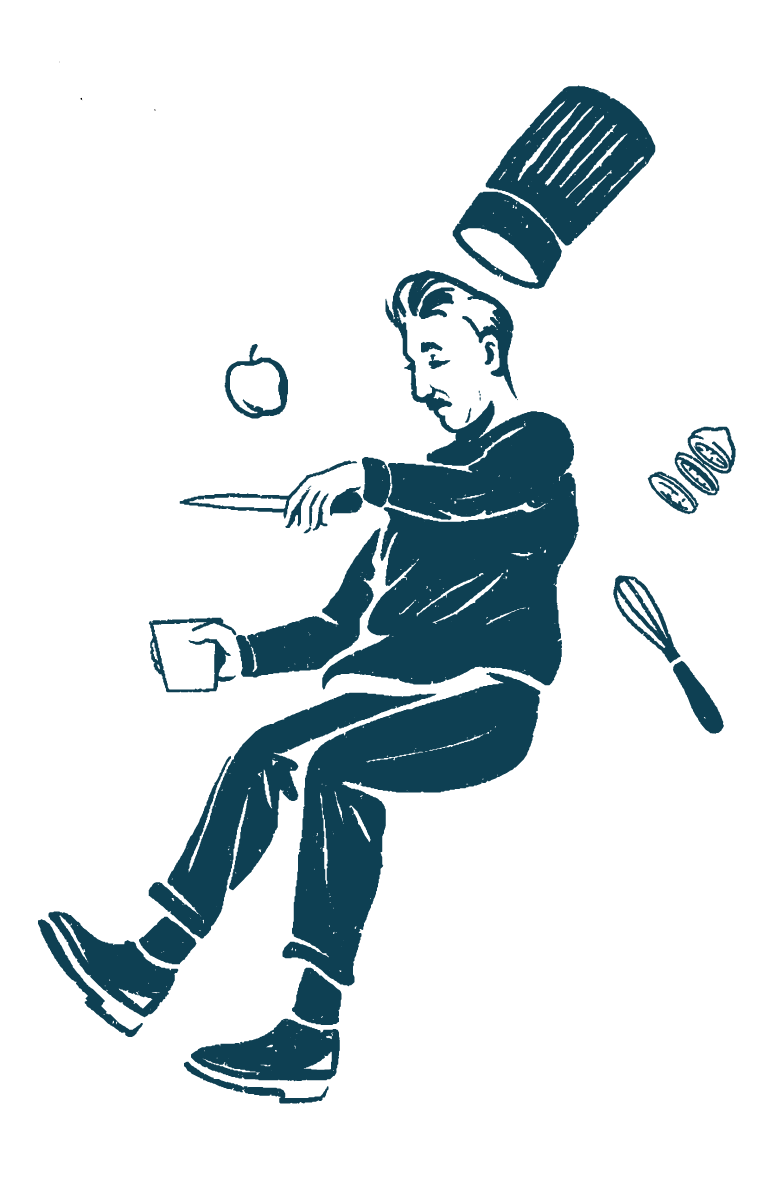
SHOWS THEY LOVE:
Chef, Hell’s Kitchen, Bar Rescue, Kitchen Nightmares, Mind of a Chef, Chef’s Table, Chef’s Plate, Pit Boss and You Gotta Eat Here. Several chefs strongly recommend the movie Burnt with Bradley Cooper. “It portrayed my life working overseas,” says Overes. “Scary! Insane. As good as the book Kitchen Confidential by Anthony Bourdain.”
WHY THEY LOVE THEM:
Good cooking shows show the passion, tears, intensity, discipline and professionalism of the job. They’re honest about kitchen stress, workload, teamwork, pressure, brigade dynamics and the time spent on prep for service and stresses of a busy restaurant. They show the behind the scenes – costing, labour, demographics, menu flow, employee retention. They celebrate the rush and pressure that comes with calling yourself a chef. They paint a picture of the lifestyle that most people in the industry have, and they show chefs striving to be current on trends and new ideas.
SHOWS THAT MISS THE MARK:
Hell’s Kitchen (yup, it’s on both lists!). Kawchuk explains “No one needs to be verbally abused on TV, or ever! There are better ways to manage a kitchen than screaming at everyone.” Shows like Master Chef, Bitch’n Kitchen, Cut Throat Kitchen and any show with Guy Fieri also made the hands-off list of our chefs. One chef avoids anything on the Food Network. And in general, our chefs are not impressed with the staged feeling of the competition shows.
WHAT THEY GET WRONG:
These shows are not realistic, they are overdramatized for TV and they don’t show the processes, planning and preparation prior to cooking. One chef can’t stand seeing chefs on TV eating over the line or tasting food with their fingers (we’re talking about you, Jamie Oliver!). Many hate to see wasted food. None of them like the screaming.
WHAT THEY WISH PEOPLE KNEW ABOUT COOKING SHOWS AND THE LIFE OF A CHEF:
The Lethbridge College chefs would like the world to know that cooking shows are more about ratings than accuracy. Cooking is not as artistic, creative and “fun” as TV may suggest. It is a hard job, with many challenges. Viewers see that many chefs now have celebrity status, but most people don’t realize the hard work they put in to get there. Kawchuk adds: “Food connects people on so many levels. It is one of the most important things in my life. It nourishes my body. It is a work of art. It connects people, and it is my passion in life.”
“Food connects people on so many levels. It is one of the most important things in my life”
{ Chef Amanda Kawchuk }
MASTERS OF FLIPPING CHANNELS
INTERIOR DESIGN AND ARCHITECTURE
CONTRIBUTORS TO THE CONVERSATION: Interior Design Technology and Architectural Animation Technology instructors Cherie Reitzel, Naama Tuckett and Sarah Westfall.
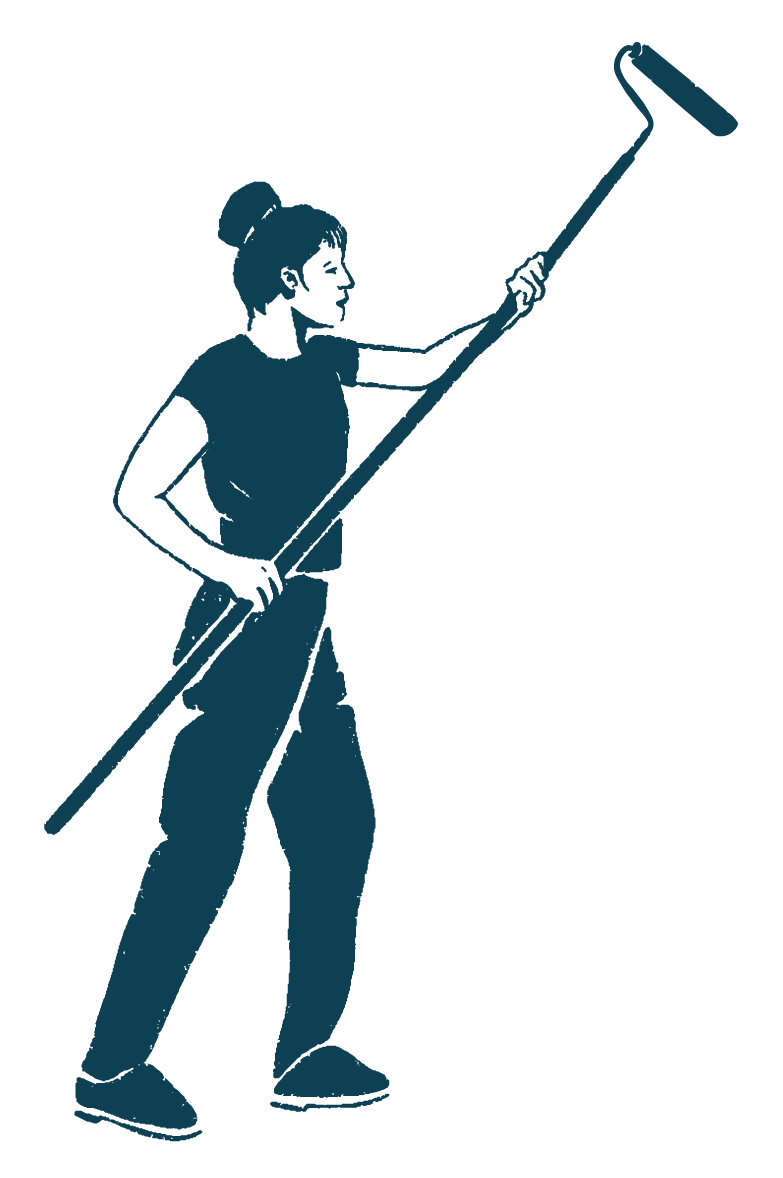
SHOWS THEY LOVE:
Sarah off the Grid (it gets so much so right – the relationships with contractors, missed deadlines, blown budgets and more). Shows with Bryan Baeumler, like Leave it to Bryan and Island of Bryan (realistic about going over budget). Masters of Flip. Opening Soon (a restaurant makeover show that focuses on the process, the deadlines, the stress and the fun of commercial design).
SHOWS THAT MISS THE MARK:
Love It or List It (the premise is unrealistic – people usually decide before they move if they are going to renovate). Fixer Upper (two of the three college colleagues felt it would be rare for a husband and wife team to work together so well). Trading Spaces (the timelines and lack of communication are completely off the mark). In general, many home reno shows miss the mark with timelines, budgets and showing how many people are actually involved in a project. They don’t show the process, the occasional mistakes, or the back and forth that takes place between the client and the designers.
BEHIND THE SCENES:
About 18 years ago, Reitzel worked as a designer on The Decorating Challenge, a Canadian Trading Spaces-style show. Her insight into the need to please the producer and client makes it hard for her to watch today’s HGTV shows, she says, although she does enjoy Fixer Upper and Property Brothers because the stars of those shows seem to be themselves, and not just people who are being fed lines by producers.
IF THEY HAD A SHOW OF THEIR OWN:
These Lethbridge College instructors would like to see more shows about commercial design, energy efficient homes or homes that
educational show, where viewers learn space planning, acoustical value, the fundamentals of staging, the design process, lighting calculations and more.
A BOON TO THEIR BUSINESS?
In the big picture, the team thinks the emergence of home reno and real estate shows has been good for their business. “These shows deal with environmental psychology and what we can feel like in our homes,” explains Reitzel. “At first when all these shows came out I thought, oh no, maybe it will kill our careers. People will learn what they need to know. But that’s not the case. And in fact now they realize more what a designer can do.”
“People get drawn to a space and they wouldn’t have seen possibilities without television.”
{ Cherie Reitzel }
GREY'S ANATOMY LESSONS
NURSING AND EMERGENCY RESPONSE
CONTRIBUTORS TO THE CONVERSATION: SPHERE health simulation team members Mackenzie Berry, Heather Gordon, Marie Laenen, Madisyn Wolstenholme and Sheri Wright and Primary Care Paramedic instructor Andrew Shaskin.
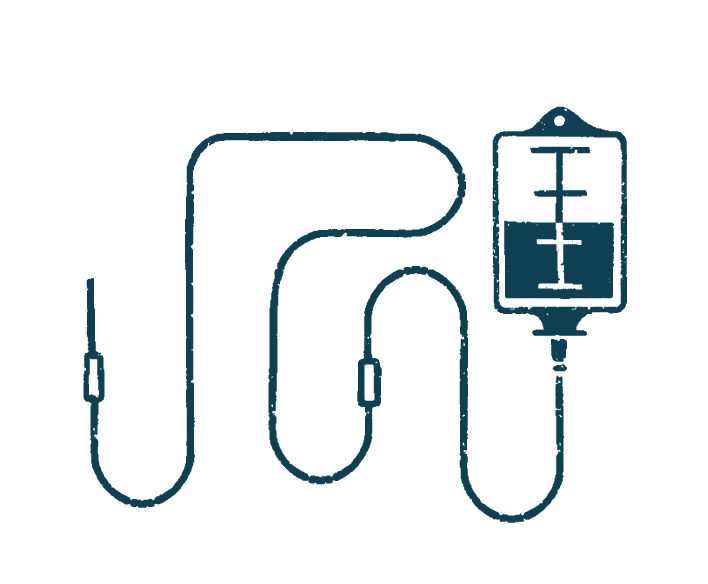
THE MEDICAL SHOW THEY LOVE TO HATE:
Grey’s Anatomy, all 14 seasons of it. This drama, more than any other, shows the best and worst of medical television. Close working relationships? Colleagues who are like family? Needing to think on your feet? Grey’s has it. But it also has every medical mistake known to television, including the old ball-point pen tracheotomy storyline. One of the biggest fictions? Having all the hospital’s doctors in the same room at the same time with a patient.
WHEN GREY’S IS OVER, CONSIDER WATCHING:
For viewing pleasure, watch ER and House (despite the unrealistic portrayal of a doctor dealing with addiction having ready access to drugs as well as his pick of cases). To watch a show that gets a lot of the medical details right, check out the 2013-14 National Geographic reality series called Inside Combat Rescue.
MOST SHOWS GET THE SAME THINGS WRONG:
Look for stethoscopes placed in the ears backwards, IV lines that go nowhere, patients who wake up from intubation feeling calm, intubation tubes that have waaayyyyy too much tubing on the outside of the mouth, air ambulances that fly in bad weather, and CPR and defibrillating that saves everyone, every time. Seeing patients being successfully defibrillated who have flatlined concerns Gordon. “In real life, there are shockable rhythms, and asystole (flatlining) isn’t one of them.”
STAFFING – IT’S NOT THAT SIMPLE:
These colleagues wish TV and the movies did a better job showing the whole healthcare team. In many shows, it seems like either everyone is a doctor or everyone is a nurse. But in reality, there are a diverse variety of health care aides, LPNs, RNs, physician assistants, respiratory therapists, doctors and other medical staff members with a variety of specialties working together to care for their patients – and for the most part, they don’t end up hooking up in the supply closet, either.
A REAL WORLD WORRY ABOUT CPR:
The Nursing and EMT instructors have a very real concern about the way CPR is usually shown on TV. In real life, it’s much more physical (it can fracture the breastbone, crack ribs and bruise the lungs). It’s also not nearly as successful as it looks on TV. A 2018 study of 18,000 people who had been hospitalized for cardiac arrest and who received CPR showed that, overall, only 28.5 per cent of the adults survived to eventually leave the hospital. On 91 episodes of Grey's Anatomy and House – that number more than doubled to 70 per cent.
REMEMBER THE KODIAKS
ATHLETICS AND RECREATION
CONTRIBUTORS TO THE CONVERSATION: Kodiaks manager of Athletics Todd Caughlin, Kodiaks women’s volleyball coach Anna Schwark and Kodiaks women’s basketball coach Deanna Simpson.

SHOWS THEY LOVE:
Remember the Titans, Rudy, Moneyball, Coach Carter, Glory Road, The Rookie, Miracle and Hoosiers top their lists. These films show that teams can be like families, they accurately portray the roller-coaster of a full season, and they give a true sense of the commitment it takes to be a competitive student-athlete. “I have always liked A League of Their Own,” adds Schwark, “because it first deals with women in sport, but it also shows the shift in team dynamics and cohesiveness,” especially as the coach, played by Tom Hanks, learns a better communication and coaching style for his team.
WHY THEY LOVE THEM:
The good shows touch on life after the game. Movies can be a great opportunity to show young viewers that there is life beyond sport, and that you can still be happy even if you lose the big game. Schwark recommends Bring It On, a movie where the main character and her team lose at the big competition – but the main character has developed as a team leader and was satisfied knowing she was beaten by a better squad. Simpson says good shows do the best job showing team dynamics, the struggles of coaching and the different personalities.
WHAT MISSES THE MARK:
Although considered a great movie, from a sports perspective, Slapshot is a terrible representation of a sports story. Our Kodiaks leaders shy away from any show or movie that shows an easy lifestyle of being a coach or athlete – and there’s a lot of “easy” shown, from having things handed to you to a lack of external pressures and beyond.
WHAT THEY WISH PEOPLE KNEW:
Life as a student-athlete and coach can be a slippery slope, explains Caughlin. “The challenges, demands, and internal and external expectations don’t come easy and the ability to deal with them doesn’t come naturally or easily. The work, commitment, exhaustion and other aspects listed above doesn’t happen without support. This is why you hear almost EVERY student-athlete and coach who is stepping away from the game say ‘I’m going to miss the locker room or the family atmosphere of going to the gym everyday!’ Until you have been in that room or on that team – it’s really tough to truly understand!”
ABOUT THOSE OBSTACLES:
Some movies seem to go over the top creating obstacles for teams to overcome – some that seem hard to believe. But there have been some experiences our Kodiaks teams have endured that seem insurmountable, including the death of a teammate. “There have been obstacles we worked through that I didn’t think we would ever be able to overcome,” says Schwark. “But a season isn’t always like that, and we aren’t always that sad. Sometimes our biggest obstacle is simply being confident and communicating on the court.”
WATCHING THE EVENING NEWSROOM
COMMUNICATIONS AND MEDIA
CONTRIBUTORS TO THE CONVERSATION: Digital Communications and Media instructors Martina Emard, George Gallant and Kris Hodgson-Bright, and Communications staff members Paul Kingsmith, Lisa Kozleski and Dawn Sugimoto.
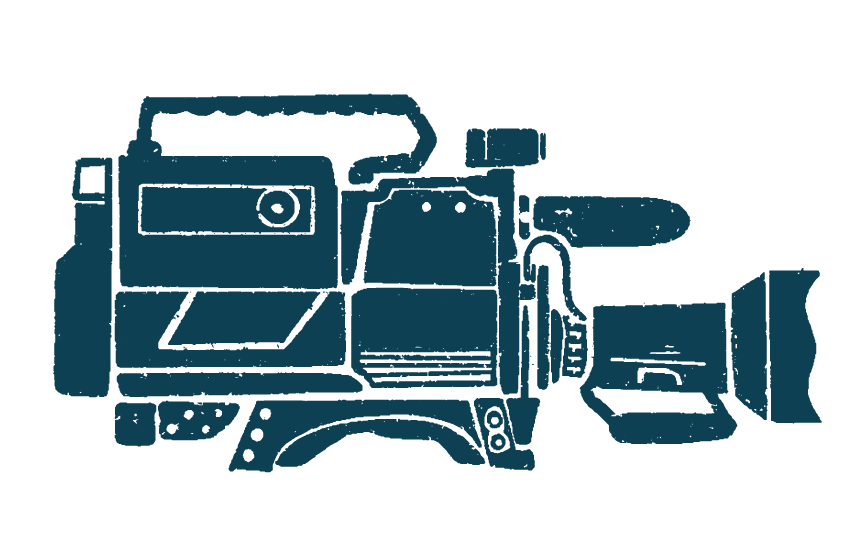
SHOWS THEY LOVE:
The Loudest Voice, Broadcast News, Murphy Brown, The Newsroom, All the President’s Men, The Post, The Insider, LA Confidential, Wag the Dog (“a really interesting premise on the power of news and how the media can change perceptions of their audiences,” Emard explains), Shattered Glass, The Paper and Spotlight (which did a great job showing that good reporting takes time, explains Gallant).
SHOWS THAT GET IT WRONG:
Nightcrawler, the 2014 film starring Jake Gyllenhaal as a freelance reporter who moves bodies into the spotlight to get a better photo or to film it better for the 10 o’clock news, is on Hodgson-Bright's list of movies to avoid. Kozleski says movies that show newspaper reporters with their own spacious offices, administrative assistants and a willingness to sleep with sources to get their stories raise red flags for her. Sugimoto agrees. Too many times, journalists are portrayed as heartless and cold, but the good ones agonize over stories, beat themselves up over getting names misspelled, and cry for and with people who’ve experienced tragedy.
TIMES THEY ARE A-CHANGING:
The 1987 film Broadcast News starred William Hurt, Albert Brooks and Holly Hunter, who was working as a female news producer – an uncommon sight in that era. Gallant loves it because it showed the characters' flaws and life inside and outside of work. “One of the best scenes was when William Hurt was interviewing someone on camera and Albert Brooks was telling him what to ask,” explains Gallant. “It really showed how shallow the TV industry was. Back then, it was all about how you look, and you would never be on the radio unless you had that deep voice. Now it’s about the quality of your content.”
THE BEST MEDICINE
For a laugh, check out Anchorman, which is unofficially required watching for their students. “It’s a parody but there’s some truth to it, too,” says Emard. “It talks about the close working relationships in a news environment. It’s about getting the story first.” “The Paper is a movie that’s probably best enjoyed by people who’ve done time in a newspaper newsroom,” says Sugimoto. “My favourite line is from an editor to a columnist complaining about having to go out on a reporting assignment,” adds Sugimoto. “‘You’re not a columnist. You’re a reporter who writes long.’ If you haven’t been in a newsroom, you probably can’t appreciate it the way I did.”
THESE THINGS TAKE TIME
“It drives me crazy when a reporter and camera person pop out of a news van with cameras and microphones in hand, ready to go,” says Kingsmith. “First of all, one of them would have been driving the van. Second, the equipment is always kept packed up in the back of the vehicle to protect it. It takes a couple of minutes to get equipment ready to use once you’re at the scene – it’s not like it’s always ready in some kind of standby mode.”



